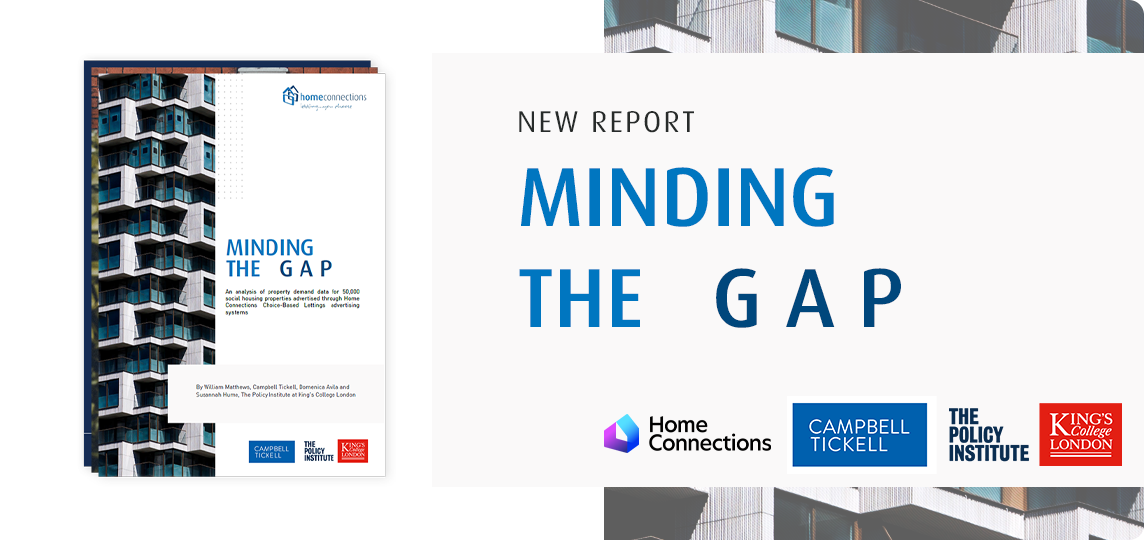Six major housing trends to look out for in 2023

2022 was an intense year for housing, and it doesn't seem things will slow down in 2023. New reforms and measures and a switch in focus are underway. Are you preparing yourself for the changes? Are you looking to reinforce your commitment to putting tenants at the heart of your services in the new year? The six areas listed below are a starting point:
1. It will be all about the tenants

- Gather information about tenants' satisfaction
- Keep properties in good repair and safety;
- Effectively handle complaints and promote respectful and helpful engagement
- Manage neighbourhood responsibly
The Regulator of Social Housing (RSH) will collate the measures to produce an overall satisfaction score. How effectively do you collect data to understand your customers and the support they need?
2. Housing quality under the magnifying glass

With the Housing Ombudsman saying that the damp and mould cases are dominating its casework, the attention will continue to be focused on social housing quality and how we can fix issues of damp, mould, leaks and cold housing.
The Housing Ombudsman asked for a zero-tolerance approach and for landlords to adopt a dedicated damp and mould policy.
The pressure to ensure social housing properties meet the high standards that residents deserve is not going away.
The Welsh Government, for example, has written to all social landlords asking for urgent assurance and details about how they have responded to the lessons learnt after the tragic death of Awaab Ishak.
3. Maximising board representation

Racism, ethnic diversity and representation sparked debate last year and will continue to be a big area of discussion in 2023.
The new Chartered Institute of Housing (CIH)'s presidential campaign, In My Shoes, led by the new CIH president, Lara Oyedele, will be around racial diversity in the housing sector. The goal is to challenge the sector's complacency regarding ethnic diversity. Read her interview for Inside Housing here.
Recruiting the right people will be fundamental as much as ensuring the community you serve is represented at the senior level in terms of ethnicity and background. Is the leadership in your organisation proactively taking the necessary steps to become more in tune with its customers' wants and needs?
4. Data ownership - ensuring data quality and integrity

In line with points 1 and 2, a key priority for housing providers this year will likely be assessing the quality and integrity of their data. Is your data trustworthy and clear enough to make well-informed decisions?
In light of the new Social Housing regulation, housing providers need to assume that there's room for improvement in their procedures, especially in complaints handling. How robust and accurate is your data in tracking your performance against set targets?
Poor quality data in government (and in business) leads to failings in services provided, poor decision-making and an inability to understand how to improve. Here is a great resource to follow if your goal is to improve your data quality.
A Business Intelligence tool can help you make data-driven decisions to improve your tenants’ lives, by building a clearer picture of your data. Create customisable reports across all areas of your housing system and set them to run regularly, so your team can operate at maximum efficiency. Request a demonstration today.
5. Rent cap on social housing

Social rents in England are set to be capped at 7% from April next year in an attempt to protect social housing tenants from the impact of the cost of living crisis. Sector leaders, however, raised concerns about how the cap will impact housing providers' capacity to invest in homes and services for tenants.
In Scotland, a rent-freeze and an eviction ban were implemented until at least the end of March 2023. However, the Scottish government is not planning to impose any rent restrictions on social landlords for the next financial year.
6. Are we on track to end homelessness by 2024?

2023 will need to see urgent and immediate action if the government intends to meet its commitment to end rough sleeping in England by 2024.
The latest report from the All-Party Parliamentary Group for Ending Homelessness (APPGEH) has outlined five top recommendations the Government should take forward to end all forms of homelessness in England up to 2024 and beyond. View the full report.
How accurate are your rough sleeping figures?
Our Homelessness Reduction Act software, hope, can help you improve your data collection, management and reporting on rough sleeping through the Rough Sleeper module. You can also extract data quickly and in real time through a built-in report builder tool.

















